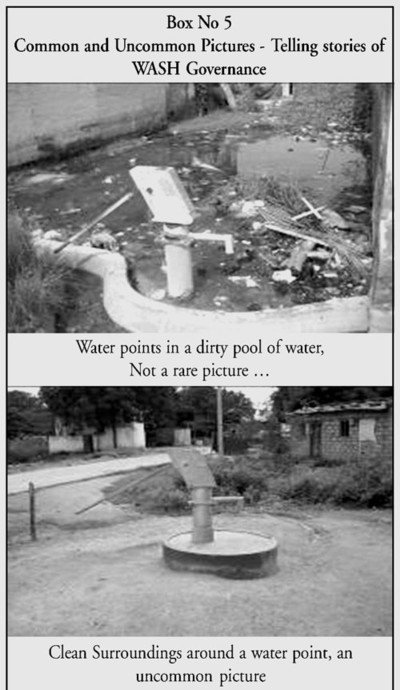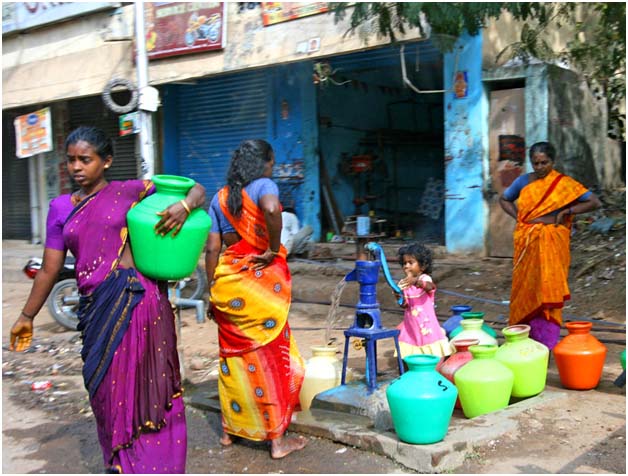Drinking and other Domestic Uses
Mayadantha Male (The miracle of rain) - All India Radio Karnataka programme on rainwater harvesting
Posted on 26 Feb, 2012 04:37 PM"The miracle of rain : Let the earth overflow"
Trends in private sector participation in the Indian water sector: A critical review - A Water and Sanitation Programme publication
Posted on 23 Feb, 2012 05:54 PMThe study also analyses the direction in which the sector is heading with respect to private sector participation. Since most PPPs are at early stages of operation, this study focuses only on learnings from PPP design and transaction. This study does not seek to assess the operating or financial performance of PPPs.
"In search of old ideas" - A discussion of the draft national water policy 2012, by Jayanta Bandopadhyay in The Telegraph
Posted on 22 Feb, 2012 05:05 PMAuthor: Jayanta Bandopadhyay
Article and image courtesy: The Telegraph
New water policy more contentious; least helpful in tackling existing issues
Posted on 22 Feb, 2012 12:34 PMAuthor : Dr. Arvind Kumar
Rural water access: Governance and contestation in a semi-arid watershed in Udaipur, Rajasthan: A paper in EPW
Posted on 21 Feb, 2012 05:19 PMStudy area
This study is carried out in micro-watershed No.19, which comprises six villages in Jhadol tehsil of Udaipur district in Rajasthan. A minor irrigation project completed in 1980 serves these six villages
Rainfall, storage levels in reservoir and groundwater use
An ecological quantification of the relationships between water, sanitation and infant, child, and maternal mortality - Paper published in the Journal Environmental Health
Posted on 21 Feb, 2012 03:30 PMA number of studies have made associations between prevention of disease burden among populations by improving water supply, sanitation, hygiene and management of water resources and between poor water quality and disease burden.
Understanding governance in WASH sector in Andhra Pradesh - A study by WASSAN
Posted on 18 Feb, 2012 03:38 PMProblems in the water, sanitation and hygiene (WASH) sector have their roots in socio-political issues rather than in technology. This paper presents the report of a survey in 107 villages in rural Andhra Pradesh to illustrate the influence of governance systems.

"Water management in Mumbai: Prospects and challenges" - Videos from a round table organised by Observer Research Foundation
Posted on 16 Feb, 2012 03:51 PMThese four films include details of speeches made by the Municipal Commissioner of Brihan Mumbai Municipal Corporation (BMC), Mr Swadhin Kshatriya, who delivered a valedictory speech and Mr Sandeep Acharya, senior journalist from Loksatta, who expressed his views on the water crisis in Mumbai, as a part of a round table organised by Observer Research Foundation (ORF), on "Water management in Mumbai: Prospects and challenges", on the 10th of January 2010.
Safe water dissemination workshop by PATH held on January 19-20, 2012 at New Delhi
Posted on 07 Feb, 2012 10:15 PMGuest post: Amita Bhaduri
Through the Safe Water Project, it is seeking complementary solutions to sustainability and scale-up by exploring the potential for commercial enterprises to produce, distribute, sell, and maintain Household Water Treatment and Storage (HWTS) consumer products to low-income populations. The workshop shared learnings and tools from PATH’s Safe Water Project and presented the experiences of other organizations that are leveraging market-based approaches to achieve a sustainable public health impact.

Alternative National Water Policy: Ramaswamy Iyer's response to comments by Rahul Banerjee and Chetan Pandit in EPW
Posted on 04 Feb, 2012 06:44 PMGuest post: Ramaswamy R Iyer
This is in response to the comments made by Rahul Banerjee (“National Water Policy”, 13 August 2011) and Chetan Pandit (“Alternative National Water Policy: A Critique”, 10 September 2011) on my article “National Water Policy: An Alternative Draft for Consideration” (25 June 2011).
Epigrammatic Style





